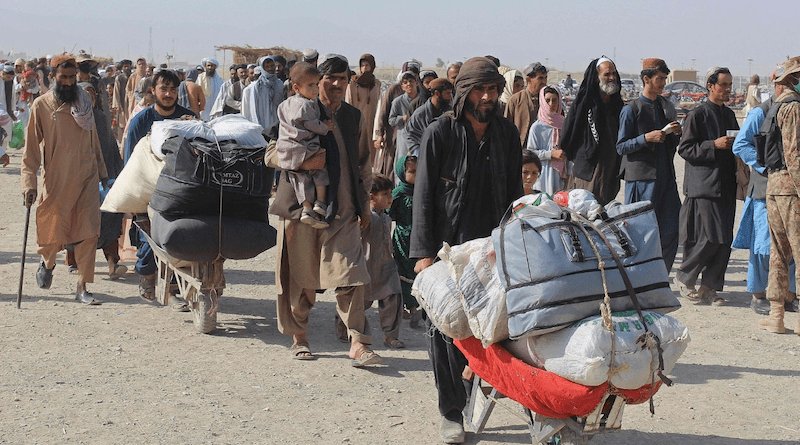Repatriation Of Afghan Nationals In Pakistan: Balancing Security And Humanity – OpEd
By Anwar Iqbal
For decades, Pakistan has been a host to millions of Afghan refugees, providing them with shelter and support during times of turmoil in their homeland. However, as the security and economic environment in Pakistan undergo changes, the repatriation of illegal Afghan nationals has become a pressing issue. With over 1.1 million Afghan refugees lacking valid documentation or visas to stay in the country, addressing this situation is of paramount importance.
As of today, Pakistan is home to more than 1.1 million Afghan refugees who lack valid documents and visas to reside in the country legally. While Pakistan has a history of generously hosting Afghan refugees during times of crisis, this large population of undocumented individuals poses several challenges. Not only does this situation strain Pakistan’s resources, but it also raises security concerns.
The handling of refugees without valid documentation is a matter of concern for nations worldwide. International standards and policies dictate that countries cannot allow refugees of unauthorized status to roam freely, as this can pose a significant security risk. It is essential to adhere to these standards while addressing the repatriation of Afghan nationals in Pakistan.
Current Situation in Afghanistan
Recent reports suggest relative peace and prosperity in Afghanistan after years of conflict. Despite these positive developments, instances of mistreatment and harassment of Afghan refugees in Pakistan have continued. To address this issue, international organizations like the International Organization for Migration (IOM), the United Nations High Commissioner for Refugees (UNHCR), and the Afghan Embassy in Pakistan have a crucial role to play in facilitating the return of refugees to Afghanistan.
One of the pressing concerns regarding Afghan nationals in Pakistan is their involvement in illegal activities. Some members of this population have been engaging in activities such as smuggling narcotics and banned goods under the guise of transit trade. This not only undermines border security but also hinders legitimate trade between the two nations. To address these issues, a well-structured repatriation process is essential.
Recommendations
To address the repatriation of Afghan nationals in Pakistan effectively, several steps need to be taken:
Collaboration between IAG, UNHCR, and Afghan Embassy: These organizations should work together to facilitate the repatriation process.
Creating repatriation arrangements: Well-structured plans and agreements should be developed to ensure the safe and dignified return of Afghan refugees.
Ensuring a secure and dignified return process: Afghan refugees must be repatriated in a way that safeguards their security and respects their dignity.
Addressing security concerns and economic challenges: To prevent the recurrence of undocumented Afghan refugees, addressing the security risks and economic hardships in Afghanistan is crucial.
Fostering international cooperation: International organizations and nations must collaborate to ensure the success of repatriation efforts.
Conclusion
The repatriation of illegal Afghan nationals in Pakistan is a complex issue that demands careful consideration. Balancing security concerns with humanity and preserving Pakistan’s longstanding spirit of goodwill towards Afghan refugees is essential. By adhering to global norms, fostering international cooperation, and addressing the root causes that drive refugees to flee, Pakistan can work towards a resolution that ensures the safety and prosperity of both its own citizens and those who seek refuge within its borders.

